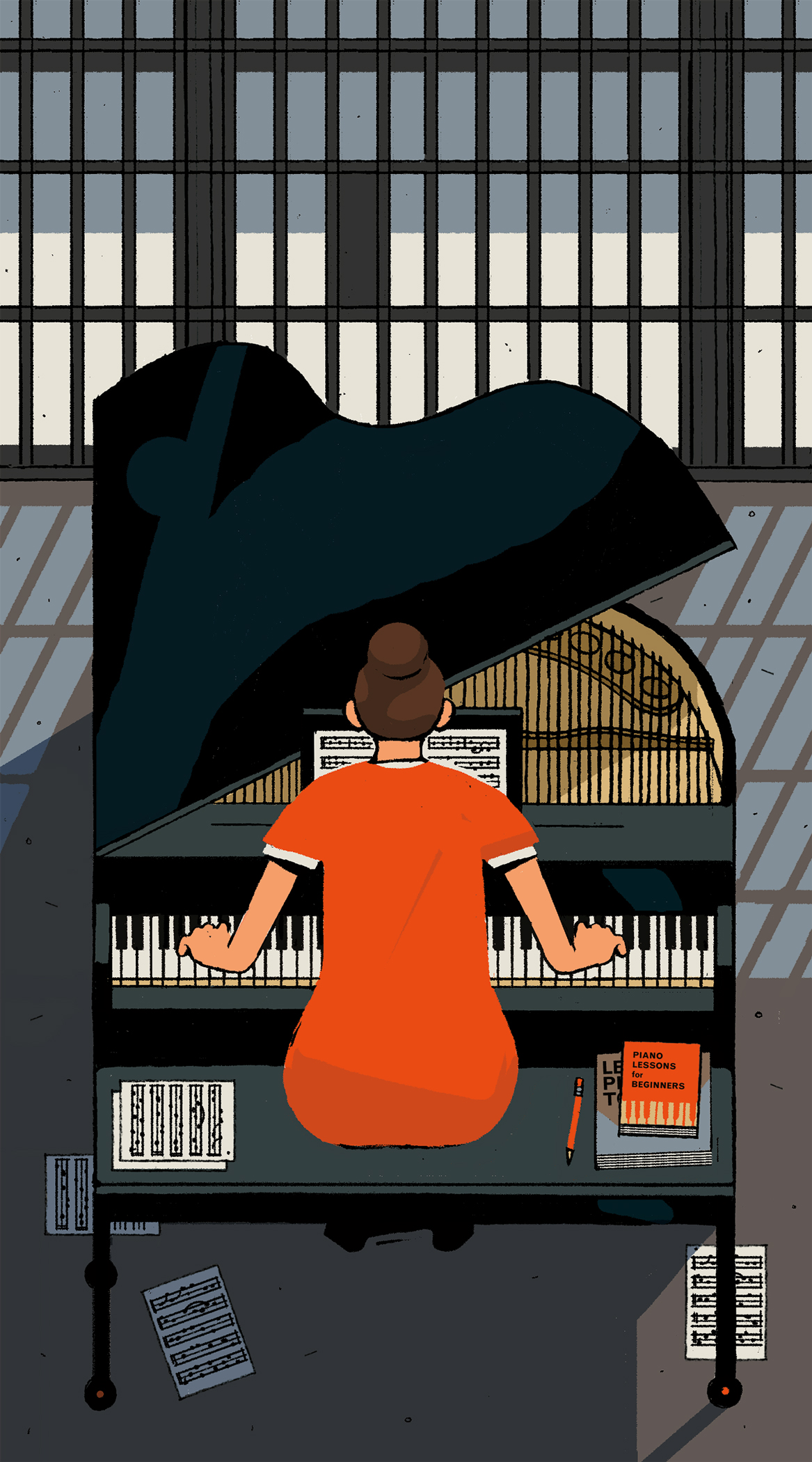Beth Schuld is not the kind of person who does anything halfway. She is intense. She is passionate. And if her popular voice and piano classes are any indication of her talent as a teacher, it’s clear that Schuld has earned the respect of parents and students in the city’s music community.
The bulk of her teaching is done in the living room of her southside home, a cozy, sunbathed space not far from the Southgate LRT station. She is a regular instructor at Edmonton’s prestigious Alberta Music Academy and, over the years, she has been involved with a multitude of choirs, including I Coristi Chamber Choir and Richard Eaton Singers.
But, every Friday for the last seven years, Schuld has taken her teaching on the road, giving private music lessons to inmates at the Edmonton Institution for Women through a program organized by the Sing For Life Society of Alberta, a not-for-profit group started by Schuld’s colleague and mentor, Eva Bostrand.
Each lesson, says prison chaplain Snowy Noble, is something many of the women look forward to all week long. And opportunities to work one-on-one with someone like Schuld are huge boosts for their self-esteem and growth.
“The offenders here, many people have already written them off. So here is an opportunity for them to experience something different through music,” explains Noble, who has worked at the prison for eight and a half years. “Not only does she bring experience as a music teacher, but she is one that is very caring, loving and kind, and that is something that is communicated to the women.”
What is also communicated is Schuld’s belief that music is more than just something you learn to play.
“You can have someone with low confidence in and out of the prison and you can have someone who is more confident both in and out of the prison,” she explains. “So the work within the prison and outside of the prison, in many ways, isn’t that different. Because everyone, at the end of the day, is just human.”
